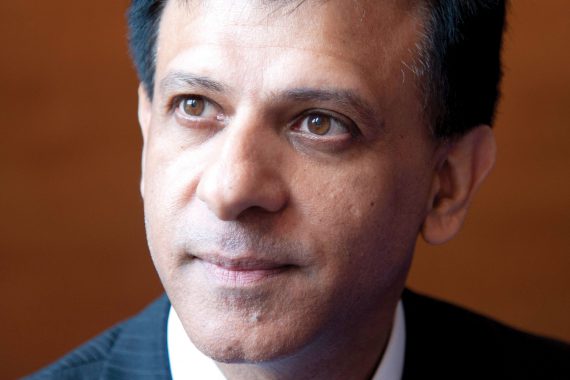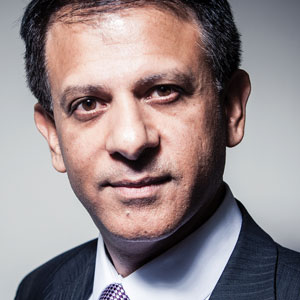‘An increase in resources not seen in recent years’


Dr Chaand Nagpaul – Power 50 2015
How do you feel about the overall agreement?
The GPC was clear from the outset that these annual variations to the contract could not resuscitate general practice from the brink of collapse following years of underfunding, rising patient demand, staff shortages and unresourced work from hospitals. Many of these pressures relate to the wider environment outside the contract, or are locally determined and will need broader and different solutions.
But this contract provides increased core resources and reimbursement of expenses to an extent not achieved in recent years, as well as a commitment to find a national approach to reduce workload and manage demand.
These changes do not detract from the GPC’s ultimatum to the Government demanding a clear rescue plan to sustain general practice immediately and in the long term. This is where we need to focus.
What changes will practices see to their funding?
We have negotiated an investment of £220m into the GP contract for 2016/17, more than double last year’s sum, let alone the paltry £36m the year before.
This is the first time there has been explicit recognition of the specific components of our expenses: rises in CQC fees, indemnity and national insurance contributions, among other charges. The settlement is designed to result in a pay uplift of 1% after reimbursing these expenses.
The investment includes a 28% increase to the item-of-service fee for vaccinations and immunisations, which will rise from the current £7.64 to £9.80.
And there is an increase in the value of a QOF point to take account of growth in population and average list size.
And what about changes to the work GPs are expected to do under the new contract?
No new clinical work or schemes are required of practices. For 2016/17 there will be no change to the QOF points available, and we have resisted the introduction of any new NICE indicators or further increases to QOF thresholds.
We negotiated the end of the dementia DES from March 2016, with its money transferred to core funding, which should ease workload. All other national enhanced services remain unchanged.
Responding to widespread concerns about unnecessary box ticking and micromanagement, we have agreed with NHS Employers that negotiations for 2017/18 will explore, among other possibilities, the end the QOF.
We also strongly expressed our concerns regarding the bureaucracy surrounding the Avoiding Unplanned Admissions DES, and have agreed to discuss its discontinuation from 2017.
Vaccination and immunisation programmes are to continue in 2016/17 with the exception of changes to the meningococcal programmes.
The final contractual change is the requirement to provide data every six months to NHS England on the availability of routine appointments in the evening and at weekends. This includes at local hubs or other practices in a federation that can be accessed by a practice’s patients. There is no contractual link to seven-day opening, and contractual opening hours remain the same.
What about non-contractual areas? Accountants say the IT proposals could have a significant impact on staff time and training.
We have secured a wider commitment with NHS England to discuss a national approach to reducing bureaucracy and promoting self-care and appropriate use of GP services.
The IT requirements are not contractual, so no practice should take on unresourced work. However, many initiatives could ease practices’ workload as well as benefiting patients – such as improved electronic communication with other parts of the system, or increasing patient use of online services, like booking appointments, by March 2017.
We will also be considering with NHS England how practices can be resourced if they offer patients the opportunity to add information to the Summary Care Record – again, this is not contractual.
What about the requirement to report breaches of an ‘indicative rate’ on locum pay?
We did not support this proposal, and it’s fraught with problems. NHS England said it intends to do it unilaterally outside the contract. We have no details of how it plans to set rates or when.
If NHS England proceeds with this, it will probably expose how under-resourced practices are with regard to locum expenses. The rise in GPs becoming locums is in part due to the unsustainable pressures of working as a partner, and the Government should instead be focusing on this, and making the job manageable and rewardable.









